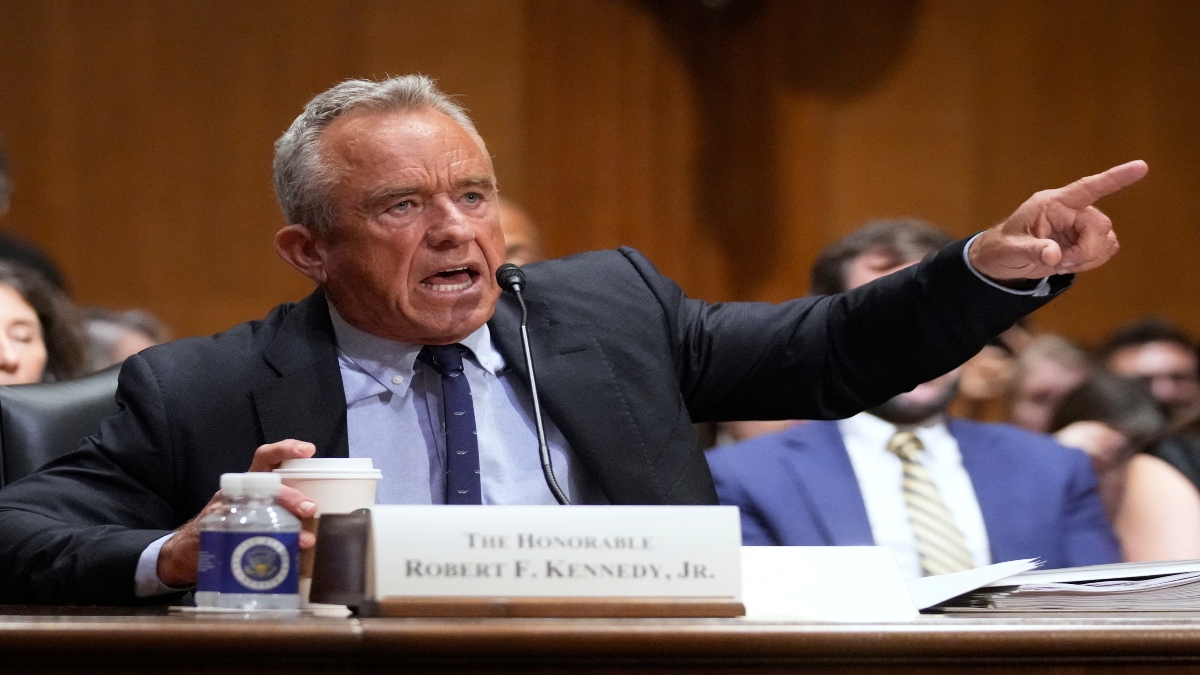US Health Secretary Robert F. Kennedy Jr. on Thursday defended the dismissal of a top Centers for Disease Control and Prevention (CDC) official, calling it “absolutely necessary,” even as Democrats demanded his resignation over efforts to scale back federal vaccine initiatives.
The fiery remarks came during a contentious Senate hearing, where lawmakers clashed repeatedly over the direction of US public health policy.
The session followed the recent firing of Sue Monarez, the former CDC director, whose ouster — along with several senior-level resignations and hundreds of layoffs — has thrown the agency into disarray.
Kennedy, in his opening statement, sharply criticised the CDC’s handling of the Covid-19 pandemic, accusing it of “failing miserably” and enacting “disastrous and nonsensical” policies, including masking guidelines, social distancing measures, and extended school closures.
“We need bold, competent and creative new leadership at CDC, people able and willing to chart a new course,” AFP quoted Kennedy as saying as he touted the health department’s new focus on chronic disease and promoting prevention.
Monarez, the former CDC director once endorsed by Kennedy Jr., publicly accused the Health Secretary of a “deliberate effort to weaken America’s public-health system and vaccine protections,” in an op-ed published Thursday in The Wall Street Journal.
Kennedy, when pressed by Senator Elizabeth Warren during the Senate hearing, offered a blunt explanation for her dismissal: “I asked her, ‘Are you a trustworthy person?’ And she said, ‘No.’”
Bitter exchanges
Once a prominent environmental lawyer, Kennedy Jr. became one of the most vocal anti-vaccine figures in the US beginning in the mid-2000s, spending nearly two decades promoting widely debunked claims.
Impact Shorts
More ShortsDespite his controversial track record, he was appointed health secretary by President Donald Trump in his second administration.
Since taking office, Kennedy has narrowed eligibility for Covid-19 vaccinations, halted federal research funding for mRNA vaccine technology — credited with saving millions of lives — and shifted resources toward studies investigating discredited theories linking vaccines to autism.
During Thursday’s Senate hearing, Finance Committee Chair Ron Wyden, the panel’s top Democrat, set a confrontational tone by demanding Kennedy be sworn in under oath.
Wyden accused the secretary of providing false written testimony, specifically regarding a previous pledge not to restrict vaccine access.
“It is in the country’s best interest that Robert Kennedy step down, and if he doesn’t, Donald Trump should fire him before more people are hurt,” AFP quoted Wyden as saying.
But Republican committee chairman Mike Crapo rejected the request to swear in Kennedy, instead commending his focus on chronic illnesses like obesity.
Tensions quickly escalated.
Democratic Senator Maria Cantwell called Kennedy a “charlatan” for attacking mRNA research, while Kennedy fired back at Senator Maggie Hassan, accusing her of “crazy talk” and “making things up to scare people” after she raised concerns about parents struggling to access Covid vaccines for their children.
Vaccines have become a flashpoint in the intensifying partisan divide.
On Wednesday, Florida announced plans to eliminate all immunization requirements, including for schools.
In response, California, Washington, and Oregon unveiled a joint initiative to establish their own vaccine advisory body to counter Kennedy’s growing national influence.
Republicans largely backed Kennedy Jr., but a few key voices broke ranks.
Senator Bill Cassidy — a physician and pivotal vote in Kennedy’s confirmation — criticized the cancellation of mRNA research grants, joined by GOP colleagues Senator John Barrasso and Senator Thom Tillis.
Cassidy asked if former President Trump deserved a Nobel Prize for Operation Warp Speed. Kennedy agreed — but in the same breath, praised hydroxychloroquine and ivermectin, drugs widely discredited as Covid treatments and promoted by conspiracy theorists.
With inputs from agencies


)

)
)
)
)
)
)
)
)



